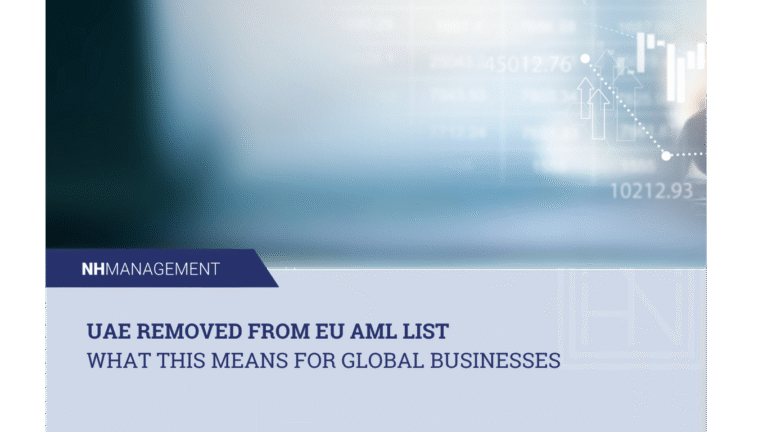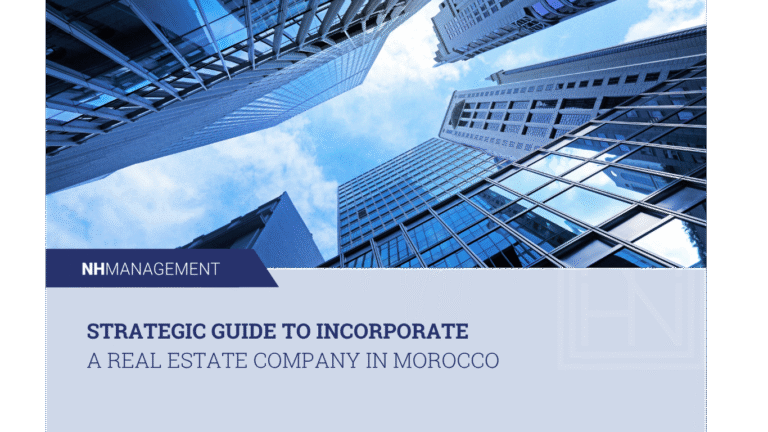How to Choose the Right Legal Structure for Your UAE Business

Choosing the appropriate legal structure is a cornerstone of successfully starting your business in the UAE. Each structure comes with unique advantages and serves specific business needs, depending on whether you operate in the mainland, free zones, or offshore jurisdictions. At NH Management, we specialize in helping entrepreneurs navigate these choices, ensuring their structure aligns with their goals and operations.
What Are the Main Legal Structures in the UAE?
The UAE offers a variety of business structures to accommodate diverse business models and industries. Below are the key options:
1. Limited Liability Company (LLC)
An LLC is one of the UAE’s most versatile and popular business structures.
Advantages:
- Limited liability protection shields shareholders’ personal assets from business debts.
- Offers flexibility to operate across various sectors and engage in local and international trade.
Previously, forming an LLC required a local partner who owned 51% of the company. With 100% foreign ownership, it is now possible for everyday specific business activities. However, free zones such as Dubai Multi Commodities Centre (DMCC) have long allowed 100% foreign ownership, granting entrepreneurs greater control over their businesses. Hence, free zones have long been preferred by foreign entrepreneurs.
2. Sole Proprietorship
A sole proprietorship is the simplest structure, ideal for individual entrepreneurs or professionals. It is typically registered on the mainland and caters to professionals like consultants, freelancers, and service providers.
Advantages:
- Complete control over business decisions and profits.
- Easy and cost-effective to establish, particularly for service-oriented ventures.
3. Partnership
A partnership structure is perfect for businesses involving shared ownership and management. Most partnerships are registered on the mainland, but certain free zones also permit partnership models tailored to specific industries.
Types of Partnerships:
- General Partnership (GP): Partners share equal management responsibilities and liabilities.
- Limited Partnership (LP): Certain partners benefit from limited liability, reducing personal risk.
Advantages:
- Allows for pooled expertise and resources.
- Flexible terms to accommodate specific agreements between partners.
4. Free Zone Entity (FZE or FZCO)
Free zones are specifically designed to attract foreign investors by offering tax advantages and streamlined processes. Choose from over 40 free zones, such as Dubai Internet City (for tech companies) or JAFZA (for logistics). Each caters to specific industries, making them ideal for export-driven businesses.
Advantages:
- Full foreign ownership without the need for a local partner.
- Zero corporate and personal income taxes, plus duty exemptions.
- Access to cutting-edge infrastructure and sector-specific clusters.
5. Offshore Company
Offshore companies are tailored for international trade, asset protection, and holding intellectual property. Popular jurisdictions include Jebel Ali Free Zone Offshore (JAFZA Offshore) and RAK International Corporate Centre (RAK ICC).
Advantages:
- Confidentiality and minimal reporting requirements.
- Tax optimization for global operations.
How to Choose the Right Legal Structure
Selecting the best structure requires careful evaluation of your business’s specific needs.
Liability Protection:
If protecting personal assets is a priority, structures like LLCs or limited partnerships provide robust safeguards.
Ownership and Control:
Free zone entities are the optimal choice for full ownership. However, businesses targeting the local UAE market should consider mainland options like LLCs, even with the 51% local partnership requirement.
Tax Implications:
Take advantage of free zones’ tax benefits, including corporate tax exemptions and other incentives. Offshore structures also optimise taxes for global operations.
Business Activities:
Align your structure with your industry and goals. For example, export-focused companies thrive in free zones, while mainland setups are ideal for local services and government contracts.
Why Choose NH Management?
At NH Management, we understand that setting up a business in the UAE involves more than paperwork—it’s about making informed decisions that drive long-term success.
Our Expertise:
- Customised advice to match your business activities with the right structure and jurisdiction.
- End-to-end assistance, from licensing to compliance with UAE regulations.
- Strategic insights to help you capitalise on market opportunities.
With our tailored consultancy services, you can confidently navigate the complexities of UAE business regulations, allowing you to focus on growing your enterprise.
Take the Next Step
Choosing the right legal structure is the foundation of your business’s success in the UAE. Don’t navigate this critical decision alone—let NH Management help. Contact us today to schedule a consultation and take the first step toward building your dream business in the UAE.
Frequently Asked Questions
1. What is the difference between a mainland and free zone company in the UAE?
A mainland company can operate anywhere in the UAE and internationally, while a free zone company is limited to its respective zone and international markets. Mainland companies also have greater access to government contracts and local clients.
2. Do I need a local sponsor for a UAE mainland company?
Not anymore in most sectors. The UAE now allows 100% foreign ownership for many mainland business activities, removing the need for a UAE national sponsor in most cases.
3. Which legal structure is best for foreign investors in the UAE?
It depends on your business goals. Many SMEs prefer an LLC for flexibility and credibility. Holding companies and branch structures are common for large multinationals or groups with operations across multiple regions.
4. Can I switch from a free zone to mainland structure later?
Yes, but it involves re-registration, license cancellation, and often forming a new entity. It’s best to choose the right structure from the beginning based on your long-term strategy.
5. How long does it take to set up a UAE company?
With the right documentation and advisory support, setup can take as little as 7–10 business days depending on the structure and jurisdiction.







